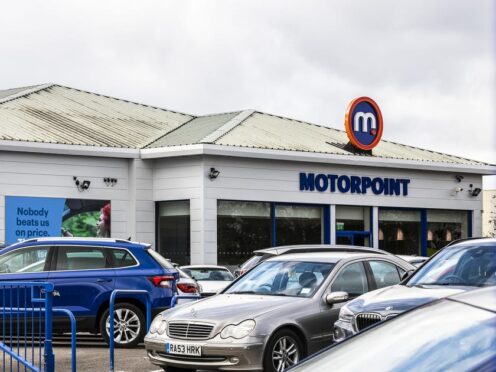Having access to fast broadband speeds and reliable mobile phone coverage isn’t just important for technology companies but for businesses in all sectors of the north’s economy, writes Peter Ranscombe.
When we think of technology companies, its natural to imagine giant businesses like Amazon, Facebook and Google.
Yet tech firms – like the programs they create – come in all different shapes and sizes.
Official figures from the Scottish Government listed 10,415 businesses that operated in the information and communications technology (ICT) sector in 2017. Only 95 of those companies were large – the rest were small or medium-sized enterprises (SMEs).
Those companies aren’t confined to the central belt either. About 15% of the businesses that are members of ScotlandIS – the trade body for the ICT sector – are based in the north-east, the Highlands and the islands.
One factor comes up again and again in conversations with technology businesses of all descriptions: connectivity.
Put simply, without fourth-generation (4G) mobile phone coverage that can send and receive data and fast fixed-line broadband speeds, running a tech firm outside a major city can be a challenge.
“4G and broadband is critical for all businesses and especially for entrepreneurs starting up tech companies in rural locations, attracted by the lure of country living,” explains Polly Purvis, chief executive at ScotlandIS. “But if you’re in an area where coverage is patchy then you are cut off in more ways than just by road and rail; you’re cut off economically too.
“Most tech companies today are set up for their staff to be able to work from home using e-mail, social media, intranets and cloud-based platforms, from software development to project management and finance systems. Internet-based messaging and conference call facilities enable people to conduct ‘virtual’ meetings, while e-commerce businesses can continue to process orders and work with customers and suppliers over the web.”
It isn’t just tech firms that are reliant on reliable connections to the internet. Connectivity is a topic that clients are discussing more often with Ritchie Whyte, senior corporate partner at law firm Aberdein Considine.
“I can’t remember the last time I received a fax if I’m honest,” Whyte smiles. “I barely write any letters nowadays.
“From a business perspective, so much is now done by e-mail and online – whether you’re logging into portals or software systems or sending or receiving e-mails – that it’s a fundamental thing. I suspect that checking their e-mail is the first thing a lot of people do in the morning and the last thing they do before they go to bed at night as well.
“If you have slow or intermittent or non-existent connections then it simply slows down your ability to trade and do business. It can mean that doing more involved things becomes more difficult.
“The importance for entrepreneurs and start-up businesses is to be nimble and to keep costs to a minimum and be able to react to things promptly. To me, it seems totally unfair that an entrepreneur in a rural area should be in a less advantageous position than an entrepreneur sitting in Glasgow or Aberdeen or Manchester.”
The divide between town and county was highlighted last month when CityFibre unveiled plans to turn Aberdeen into Scotland’s first “gigabit city”. Working in partnership with mobile phone operator Vodafone, CityFibre will invest at least £40m to bring optical-fibre connections to almost every building in the city, offering speeds of up to one gigabit per second or 1,000 megabits per second.
The company has already installed 82 kilometres of optical fibres in Aberdeen since March 2015. At present, only 3% of premises in the UK have optical fibres connected to buildings, as opposed to cabinets in their streets, which are then linked to users via traditional copper wires.
The Scottish Government’s Digital Scotland Superfast Broadband programme aims to give 95% of the country access to optical-fibre broadband by the end of this month.
The next step was trumpeted in December, when the administration used its 2018-19 draft budget to confirm details of its Reaching 100% (R100) programme, which involves spending £600million over the next four fiscal years to ensure universal broadband coverage.
Fergus Ewing – who has the rather grand title of “rural economy and connectivity secretary” – hailed R100 as “the biggest public investment ever made in a UK broadband project”. He added that the programme would “place rural Scotland among the best-connected places anywhere in Europe”.
Purvis highlighted how having digital connections played a key role during the heavy snowfall at the start of this month. She pointed to the importance of broadband connections not just for businesses but also for schools, colleges and social mobility.
“All of these factors underpin the added importance of delivering the Scottish Government’s R100 programme,” she added. “This ambitious programme gives a commitment to deliver superfast broadband to 100% of premises by 2021, putting Scotland ahead of the rest of the UK and on a par with the best in Europe, but getting it installed across all communities in Scotland as fast as possible is essential.”
Making speedy connections is a topic that’s also high on the agenda for the Federation of Small Businesses (FSB). In its recent evidence to the UK Parliament’s Scottish Affairs Committee, the organisation applauded the R100 programme, but also called on telecommunications companies and ministers to work together to make sure no businesses were left behind.
Broadband isn’t the only concern for the FSB. It highlighted the important role that data connections via mobile phones will play in remote areas away from optical fibre network connections.
At present, only 17% of Scotland can receive 4G connections on all four mobile phone networks compared with 60% of England. The FSB has called for nation-specific conditions to be placed on the sale of bandwidth during mobile phone spectrum auctions.
A spokesman for Ofcom, the telecommunications regulator, said: “We agree mobile coverage must improve, particularly in rural areas. We’ll soon consult on plans to require mobile companies to extend their networks further, as new airwaves become available.”
The importance for entrepreneurs and start-up businesses is to be nimble.


